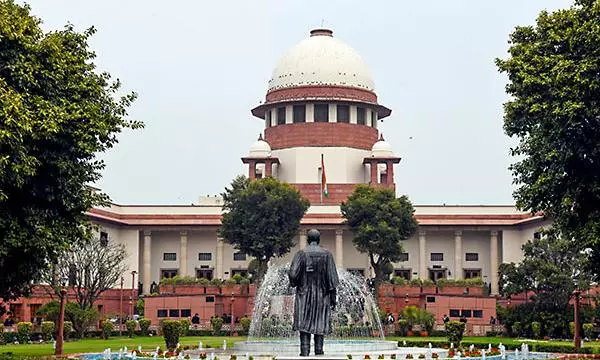
SC to decide on listing of pleas challenging new Waqf Act today
Apex court says it will review requests to list pleas challenging Waqf law amendments; petitioners argue Act infringes on religious freedom and property rights

The Supreme Court on Monday (April 7) said it would consider listing for hearing the batch of petitions challenging the constitutional validity of the Waqf (Amendment) Act, 2025.
Chief Justice of India (CJI) Sanjiv Khanna, while hearing a request from senior advocate Kapil Sibal, appearing for Jamiat Ulama-i-Hind, one of the petitioners challenging the law, said all urgent listing requests, including those sent via email, would be reviewed in the afternoon.
Other senior lawyers, including AM Singhvi, Zulfiker Ali PS, and Nizam Pasha, also supported the plea for prioritised listing.
The CJI reiterated that the court follows a set protocol and that oral mentions were unnecessary.
He explained that the court has a structured process for reviewing written requests or emails seeking urgent listing of cases.
“These requests will be placed before me this afternoon. I will take a look… Why do you mention it in when a system is already in place?” he asked Sibal.
Also Read: Waqf Bill passed in Parliament: What next for Opposition?
Act under scanner
The Act, which received Presidential assent on April 5, makes sweeping changes to the Waqf Act, 1995, which governs the management of Islamic charitable endowments in India.
Petitioners argue the new law imposes arbitrary and discriminatory restrictions on the Muslim community's right to manage waqf properties, undermining their religious autonomy.
They say it violates Articles 14, 25, 26 and 300A of the Constitution by limiting waqf creation and expanding state control.
The Act allegedly restricts the community’s ability to dedicate property for religious use and shifts administrative control to the Union government and District Collectors.
It also empowers the Centre to frame rules on the registration of waqf properties, publication of financial accounts, and disclosure of Waqf Board proceedings.
Further, an amendment to the composition of the Waqf Board and the Central Waqf Council mandates the inclusion of non-Muslim members in waqf administrative bodies.
Petitioners argue that this constitutes unwarranted interference in religious administration, noting that Hindu religious endowments continue to be managed exclusively by Hindus under various state laws.
Also Read: 'Breakdown of rule of law': SC slams UP for converting civil cases into criminal ones
Key objections
Deletion of ‘waqf by user’: A long-standing principle allowing properties used for religious purposes over time to be declared as waqf has been removed.
Five-year Islamic practice rule: Only those practicing Islam for five years can now create a waqf, excluding converts.
Inclusion of non-Muslim members: The new Bill mandates that two Central Waqf Council members be non-Muslims, unlike in Hindu religious boards.
Control shift: The Bill extends the power to audit waqf accounts at any time to the Central government, enabling it to order audits by the Comptroller and Auditor General (CAG) or a designated officer.
Also Read: 'Religious, social and political blow': What Urdu media says about Waqf Bill
Religious autonomy at risk?
Multiple parties have moved the court, including AIMIM MP Asaduddin Owaisi, Congress MP Mohammad Jawed, AAP MLA Amanatullah Khan, and religious groups like Jamiat Ulama-i-Hind.
They argue that the Act dismantles the delicate balance between religious autonomy and state oversight.
According to them, the amendments violate established jurisprudence and amounts to hostile discrimination, diminishing waqf protections and shifting power from community-led boards to the Union government.
With multiple petitions pending, the court’s decision on listing will determine how soon this landmark legal challenge is heard.

